The sky was an unsettling shade of gray the afternoon I returned to the cemetery, carrying flowers I had arranged carefully the night before. The clouds hung low, stretching across the horizon like a heavy curtain waiting for its final cue.
The air carried a faint chill, the kind that seeps deep into your bones, reminding you that some places are meant for reflection, not comfort. As I walked between rows of weathered gravestones, each name carved into stone felt like a small echo of someone’s story ending.
My mother’s grave was tucked beneath an old maple tree whose branches reached out like gentle arms, as though still trying to protect her. I knelt down, brushing away a few fallen leaves and the thin layer of dust that had settled since my last visit.
Her name, etched cleanly into the polished stone, always struck me the same way—it was real, unchangeable, final. A reminder that no matter how much time passed, she would remain here, waiting for the people who still needed her even in death.
I whispered a quiet greeting, my voice trembling slightly, and adjusted the flowers until they stood in a balanced arrangement. It had become a ritual for me, a way to keep her close even when grief felt like a distant ache instead of a fresh wound. I thought I was alone. I thought I would have a moment to breathe, to remember, to feel something other than the chaos my life had become.
But peace rarely lasts when old wounds remain unhealed.
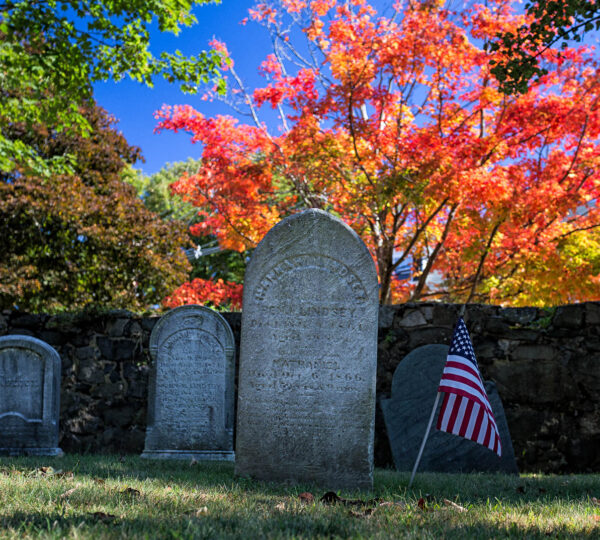
Gravestones under a Maple Tree
I heard footsteps behind me—sharp, quick, angry footsteps. Before I could even process the warning my instincts screamed, a strong hand grabbed the back of my shirt. In one swift motion, I was shoved hard against the edge of the gravestone. My back hit the cold stone with a force that stole the air from my lungs, and for a heartbeat, everything spun.
“This is where you belong!” Gavin snarled, his voice rough and charged with fury I hadn’t seen in years.
His face loomed above me, twisted with emotions so raw it was almost frightening. His jaw clenched tightly, his eyes blazing with resentment he had never learned to tame. I stared at him, unable to speak, not because I was afraid of him—but because I couldn’t believe how far we had fallen as siblings.
This was the boy who once held my hand on the first day of school so I wouldn’t feel scared. This was the teenager who snuck me candy before dinner when our mother wasn’t looking. This was the brother I once trusted, laughed with, defended, admired.
And now he was pushing me against our mother’s gravestone as if I were the enemy.
Before he could take another threatening step, a voice cut through the heavy air like a sharp blade.
“Gavin! Stop right there!”
I looked to the side and saw them—my mother’s Bridge Club. Six older women who were more like honorary aunts than family friends. They had been there for every milestone, every birthday, every heartbreak. They had been there for my mother through illness, through laughter, through the quietest hours of her life. And even now, long after she was gone, they were still here—protecting what she loved.
Phones raised. Cameras recording. Their faces stern, unwavering.
In that instant, the rage in Gavin’s expression faltered. He stiffened, his eyes darting wildly from one phone screen to another. The panic was instant, raw, undeniable. His posture deflated as the reality of what he had just done sank in. This wasn’t just a violent outburst fueled by grief or envy. This was a moment captured forever, a moment that could not be erased, rewritten, or justified.
“Gavin,” I managed to say, my voice softer than I felt, “this isn’t what she wanted.”
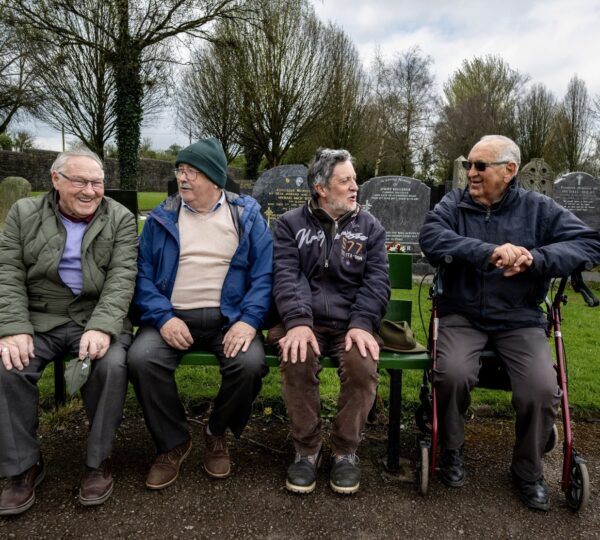
Marking: XX Sarah Horgan: 17/05/25
The affectionately nicknamed St. Catherine’s Cemetery Walking Club, John Long, John Dorgan, John O’Callaghan, and Denis Murphy, share a moment of companionship on a park bench in St. Catherine’s Cemetery, Kilcully. United by the loss of their partners, the four men have found friendship and support in their regular walks together around the perimeter of gravestones. Picture by Chani Anderson.
The anger in his eyes flickered like a dying flame. For a moment—one fleeting moment—he looked like the boy I used to know, the one who wanted to be loved but never quite knew how to accept it.
“She wanted us to be a family,” I continued, my voice steadier with each word. “She wanted us to look out for each other, not tear each other apart.”
He swallowed hard, his jaw trembling. The tension between us thickened as the Bridge Club members stood behind me, forming an unspoken wall of protection, their presence a reminder of the community my mother had built—one of loyalty, compassion, and unwavering strength.
Gavin shook his head, his voice cracking as he rasped, “What about me? What about what I want? She gave you everything. She left you everything. And she left me with nothing.”
His words hit harder than any shove. They weren’t new—he had been saying versions of this for years—but the pain behind them was sharper than ever. He wasn’t just angry. He was broken. A wounded child trapped in the body of a grown man who didn’t know how to heal.
“You weren’t left with nothing,” I said quietly. “She left you with her love, with memories, with the chance to rebuild. Those things matter more than anything money can buy.”
He looked down, his hands clenching and unclenching. The wind swayed the branches overhead, casting shifting shadows across his face. For a long, agonizing moment, I thought he might break open and finally let the truth settle in. I thought he might choose healing instead of bitterness.
But hope doesn’t always win.
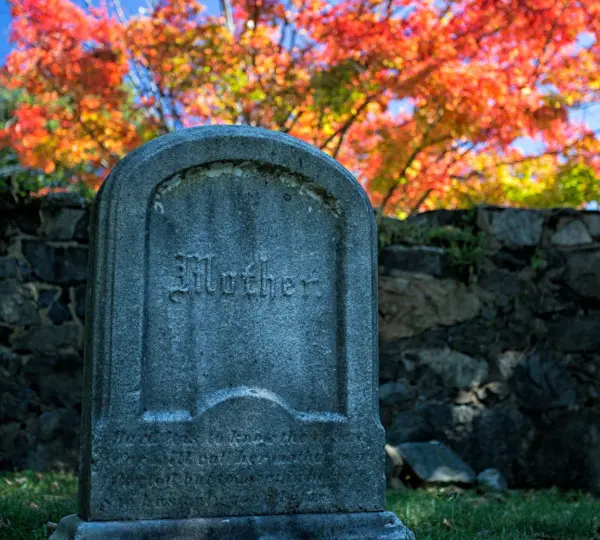
One of the Bridge Club members—Diane, the retired judge who had always acted as the group’s moral compass—stepped forward. Her voice was calm but carried the weight of someone who had delivered hundreds of difficult truths.
“Gavin,” she said gently, “you still have time to do the right thing. You can fix this. You can take responsibility. It’s not too late to change.”
He hesitated, shoulders trembling, breath ragged. I held my breath, silently begging him to hear her, to hear me, to hear the voice of the mother who raised us both with the same love.
But then—without another word—he turned and walked away.
His steps were uneven, his shoulders hunched, as though gravity itself had grown heavier. He disappeared into the rows of gravestones, swallowed by shadows and silence until nothing remained of him but a lingering sense of loss.
The Bridge Club women slowly lowered their phones. Their stern expressions softened, replaced by sorrowful compassion. They knew this wasn’t just a fight. They knew this was the unraveling of a family that had already lost too much.
One by one, they approached me—patting my shoulder, hugging me, whispering comfort. Their presence felt like a warm shield against the cold unraveling around me. But when they finally drifted away, leaving the cemetery in small clusters, I stayed behind.
I knelt again, this time tracing the letters of my mother’s name with trembling fingers. The stone was cool beneath my touch, grounding me in a way nothing else could. My heart felt heavy, but also determined. I whispered a promise to her—a promise that I would try to mend what was broken, even if it took time, even if Gavin wasn’t ready yet.
Above me, the maple tree rustled softly, as if the world itself was acknowledging my vow.
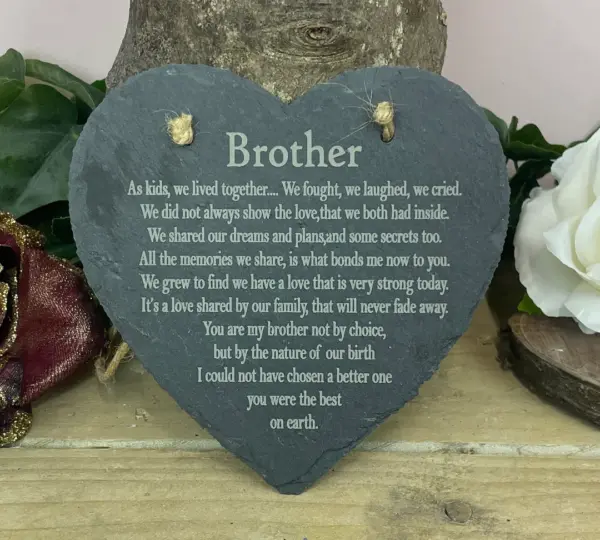
As I stood there in the quiet stillness, surrounded by reminders of how short life truly is, a small flicker of hope stirred within me.
Maybe, someday, my brother and I could find our way back to each other.
Maybe love could still reach where anger had taken root.
Maybe the story wasn’t over yet.
For a long time after Gavin’s figure disappeared into the maze of gravestones, I stood there rooted in silence, unable to move. The cemetery felt like a world paused—suspended between the weight of what had just happened and the uncertain aftermath waiting to unfold. The wind rustled through the leaves above, gently shaking loose a few golden fragments that drifted down around me like fragile whispers from the past.
I placed both hands on my mother’s gravestone, letting the cool surface steady my breath. Every inch of me trembled—not from fear, but from the overwhelming collision of grief, anger, and something softer I didn’t want to admit: hope.
Despite everything that had just happened, despite the bruise forming along my shoulder where Gavin had shoved me, I couldn’t shake the belief that this story wasn’t finished. Not yet.
Behind me, the footsteps of the Bridge Club members faded away down the cemetery path. Their presence lingered in the air even after they were gone—warm, protective, unwavering. They had been my mother’s chosen family, and in many ways, they had become mine as well.
But now I was alone, standing in the quiet shadow of the maple tree, in front of the person who had loved both Gavin and me beyond anything we ever deserved.
“I’m trying,” I whispered. “I promise I’m trying.”
The breeze shifted, and for a moment, it felt like the world was listening.
The Weight of the Days That Followed
The next few days were a blur of emotion—not dramatic or explosive like the cemetery scene, but slow and heavy. That kind of grief is quiet. It sinks into your bones, settles behind your ribcage, and presses there until you finally sit with it.
I found myself replaying Gavin’s expression over and over—the panic, the regret, the flash of the boy he used to be before life started taking more from him than he could handle. I replayed the moment his voice cracked when he said he was left with nothing. I replayed the way he walked away, as though he were trying to escape not just us, but himself.
I wanted to be angry. I wanted to shut the door on every painful memory and let resentment take root. But every time I tried, I found myself remembering the brother who once built forts with me in the living room, who held my hand during thunderstorms, who laughed so hard he cried when our dog stole a Christmas ham off the table.
That boy was still inside him somewhere. Buried under bitterness maybe, but still there.
And losing our mother hadn’t just broken me—it had broken him too, just in different ways.
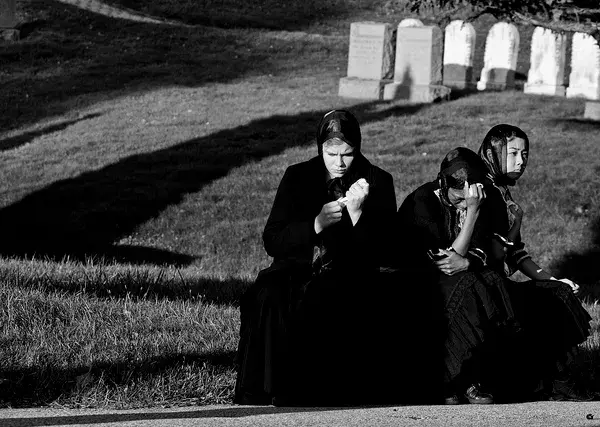
The Bridge Club Steps In Again
On the third evening, as I sat alone on my porch staring at the dimming sky, the Bridge Club arrived without warning. They didn’t knock. They didn’t even speak at first. They just walked in with purpose—carrying casseroles, mugs of tea, a small stack of old photo albums, and those same expressions of gentle determination.
“Grief shouldn’t be done alone,” Diane said simply.
They sat around my living room like a protective circle, filling the quiet space with a soft hum of voices that made the house feel less empty. They shared stories of my mother—stories I had never heard before. Stories about her courage, her stubbornness, her laughter, and her compassion. Stories about how she used to brag about her children, even when we gave her reasons not to.
By the time they opened the third album, I could feel something inside my chest loosening. The ache didn’t disappear—but it changed. It became something I could carry without collapsing.
Then, when the room was quiet again, Diane set down her mug and looked at me with her perceptive judge’s eyes.
“You know,” she said, “your mother spent years trying to hold you both together. She never gave up on either of you. She wouldn’t want you to give up now.”
I swallowed hard. “I don’t know how to reach him anymore.”
“There’s no map for forgiveness,” another woman murmured. “You just take one step at a time.”
“And sometimes,” added another, “you let them take their own steps too. Even if they’re in the wrong direction first.”
Their words sank deep into me, settling into the parts of my heart that still wanted to keep fighting for Gavin, even when everything felt impossible.
A Soft Miracle in the Form of a Letter
A week passed with no word from Gavin.
No calls.
No messages.
Not even a rumor of where he had gone.
Until one morning, I found an envelope slipped beneath my door.
Not mailed. Not delivered by anyone I recognized.
Just an unmarked white envelope with my name written in a shaky hand.
Inside was a letter.
The handwriting was unmistakable—messy, rushed, uneven. Gavin’s.
Every line was an apology he didn’t know how to speak.
Every sentence was a confession he had been too afraid to face.
He wrote about feeling abandoned long before our mother died, even though he never once said it out loud. He wrote about mistakes he made, things he regretted, things he didn’t know how to undo. He wrote about standing in front of her grave after he left the cemetery, long after everyone else had gone, and realizing that anger had become a shield he couldn’t lower.
And at the end, in a line so simple it nearly broke me, he wrote:
“I don’t know how to fix anything, but I want to try if you’ll let me.”
My vision blurred before I even realized I was crying.
Because that was all I had hoped for.
A spark.
A beginning.
A sign that my brother hadn’t disappeared forever into the bitterness that had consumed him for so long.
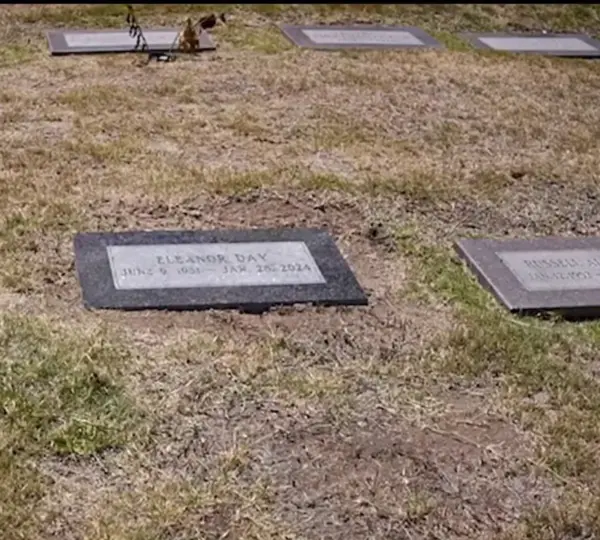
The Start of Something Like Healing
I didn’t go running to find him.
Not because I didn’t want to—but because healing deserved patience, not panic.
Instead, I wrote back.
My letter was longer than his. Softer. Filled with truths we hadn’t spoken in years. I told him I forgave him for the cemetery. I told him I understood his pain even if I didn’t always agree with how he expressed it. I told him that our mother loved him deeply—and that love hadn’t died with her.
I ended it with an invitation.
“Whenever you’re ready, I’ll be here.”
Days passed before he responded.
Then weeks.
Sometimes healing takes time—more time than we want.
But eventually, one evening at sunset, I heard a hesitant knock on my front door. When I opened it, Gavin stood there—eyes red, hands shaking, a man exhausted from the weight of his own choices.
He didn’t speak at first. Neither did I.
We just looked at each other—two wounded siblings standing in the doorway between the past and the possibility of a better future.
And then, quietly, he said:
“Can we talk?”
A New Beginning at the Same Old Grave
Months later, we returned to our mother’s grave together.
This time, not as enemies.
Not as strangers.
We stood beneath the same maple tree, listening to the same wind, looking at the same etched name. But everything was different.
Gavin placed a flower on her grave and whispered something so quiet I couldn’t hear it. Then he stepped back and looked at me—not with anger, not with resentment, but with something closer to peace.
“We’ll be okay,” he said softly.
For the first time in a long time, I believed him.
Where Hope Lives
Families break.
They bend.
They bruise.
They crack under the pressure of grief, misunderstandings, and old wounds left untreated.
But sometimes—if there is even one thread of love left—families can also heal.
Standing there beside my brother, I realized something that changed everything:
Healing doesn’t erase the past.
It gives it a place to rest.
And at that cemetery, surrounded by memories of those who had gone before us, Gavin and I took the first steps toward rebuilding what we thought was lost.
Not perfectly.
Not instantly.
But honestly.
And that was enough.
The sky was an unsettling shade of gray the afternoon I returned to the cemetery, carrying flowers I had arranged carefully the night before. The clouds hung low, stretching across the horizon like a heavy curtain waiting for its final cue.
The air carried a faint chill, the kind that seeps deep into your bones, reminding you that some places are meant for reflection, not comfort. As I walked between rows of weathered gravestones, each name carved into stone felt like a small echo of someone’s story ending.
My mother’s grave was tucked beneath an old maple tree whose branches reached out like gentle arms, as though still trying to protect her. I knelt down, brushing away a few fallen leaves and the thin layer of dust that had settled since my last visit.
Her name, etched cleanly into the polished stone, always struck me the same way—it was real, unchangeable, final. A reminder that no matter how much time passed, she would remain here, waiting for the people who still needed her even in death.
I whispered a quiet greeting, my voice trembling slightly, and adjusted the flowers until they stood in a balanced arrangement. It had become a ritual for me, a way to keep her close even when grief felt like a distant ache instead of a fresh wound. I thought I was alone. I thought I would have a moment to breathe, to remember, to feel something other than the chaos my life had become.
But peace rarely lasts when old wounds remain unhealed.

Gravestones under a Maple Tree
I heard footsteps behind me—sharp, quick, angry footsteps. Before I could even process the warning my instincts screamed, a strong hand grabbed the back of my shirt. In one swift motion, I was shoved hard against the edge of the gravestone. My back hit the cold stone with a force that stole the air from my lungs, and for a heartbeat, everything spun.
“This is where you belong!” Gavin snarled, his voice rough and charged with fury I hadn’t seen in years.
His face loomed above me, twisted with emotions so raw it was almost frightening. His jaw clenched tightly, his eyes blazing with resentment he had never learned to tame. I stared at him, unable to speak, not because I was afraid of him—but because I couldn’t believe how far we had fallen as siblings.
This was the boy who once held my hand on the first day of school so I wouldn’t feel scared. This was the teenager who snuck me candy before dinner when our mother wasn’t looking. This was the brother I once trusted, laughed with, defended, admired.
And now he was pushing me against our mother’s gravestone as if I were the enemy.
Before he could take another threatening step, a voice cut through the heavy air like a sharp blade.
“Gavin! Stop right there!”
I looked to the side and saw them—my mother’s Bridge Club. Six older women who were more like honorary aunts than family friends. They had been there for every milestone, every birthday, every heartbreak. They had been there for my mother through illness, through laughter, through the quietest hours of her life. And even now, long after she was gone, they were still here—protecting what she loved.
Phones raised. Cameras recording. Their faces stern, unwavering.
In that instant, the rage in Gavin’s expression faltered. He stiffened, his eyes darting wildly from one phone screen to another. The panic was instant, raw, undeniable. His posture deflated as the reality of what he had just done sank in. This wasn’t just a violent outburst fueled by grief or envy. This was a moment captured forever, a moment that could not be erased, rewritten, or justified.
“Gavin,” I managed to say, my voice softer than I felt, “this isn’t what she wanted.”

Marking: XX Sarah Horgan: 17/05/25
The affectionately nicknamed St. Catherine’s Cemetery Walking Club, John Long, John Dorgan, John O’Callaghan, and Denis Murphy, share a moment of companionship on a park bench in St. Catherine’s Cemetery, Kilcully. United by the loss of their partners, the four men have found friendship and support in their regular walks together around the perimeter of gravestones. Picture by Chani Anderson.
The anger in his eyes flickered like a dying flame. For a moment—one fleeting moment—he looked like the boy I used to know, the one who wanted to be loved but never quite knew how to accept it.
“She wanted us to be a family,” I continued, my voice steadier with each word. “She wanted us to look out for each other, not tear each other apart.”
He swallowed hard, his jaw trembling. The tension between us thickened as the Bridge Club members stood behind me, forming an unspoken wall of protection, their presence a reminder of the community my mother had built—one of loyalty, compassion, and unwavering strength.
Gavin shook his head, his voice cracking as he rasped, “What about me? What about what I want? She gave you everything. She left you everything. And she left me with nothing.”
His words hit harder than any shove. They weren’t new—he had been saying versions of this for years—but the pain behind them was sharper than ever. He wasn’t just angry. He was broken. A wounded child trapped in the body of a grown man who didn’t know how to heal.
“You weren’t left with nothing,” I said quietly. “She left you with her love, with memories, with the chance to rebuild. Those things matter more than anything money can buy.”
He looked down, his hands clenching and unclenching. The wind swayed the branches overhead, casting shifting shadows across his face. For a long, agonizing moment, I thought he might break open and finally let the truth settle in. I thought he might choose healing instead of bitterness.
But hope doesn’t always win.

One of the Bridge Club members—Diane, the retired judge who had always acted as the group’s moral compass—stepped forward. Her voice was calm but carried the weight of someone who had delivered hundreds of difficult truths.
“Gavin,” she said gently, “you still have time to do the right thing. You can fix this. You can take responsibility. It’s not too late to change.”
He hesitated, shoulders trembling, breath ragged. I held my breath, silently begging him to hear her, to hear me, to hear the voice of the mother who raised us both with the same love.
But then—without another word—he turned and walked away.
His steps were uneven, his shoulders hunched, as though gravity itself had grown heavier. He disappeared into the rows of gravestones, swallowed by shadows and silence until nothing remained of him but a lingering sense of loss.
The Bridge Club women slowly lowered their phones. Their stern expressions softened, replaced by sorrowful compassion. They knew this wasn’t just a fight. They knew this was the unraveling of a family that had already lost too much.
One by one, they approached me—patting my shoulder, hugging me, whispering comfort. Their presence felt like a warm shield against the cold unraveling around me. But when they finally drifted away, leaving the cemetery in small clusters, I stayed behind.
I knelt again, this time tracing the letters of my mother’s name with trembling fingers. The stone was cool beneath my touch, grounding me in a way nothing else could. My heart felt heavy, but also determined. I whispered a promise to her—a promise that I would try to mend what was broken, even if it took time, even if Gavin wasn’t ready yet.
Above me, the maple tree rustled softly, as if the world itself was acknowledging my vow.

As I stood there in the quiet stillness, surrounded by reminders of how short life truly is, a small flicker of hope stirred within me.
Maybe, someday, my brother and I could find our way back to each other.
Maybe love could still reach where anger had taken root.
Maybe the story wasn’t over yet.
For a long time after Gavin’s figure disappeared into the maze of gravestones, I stood there rooted in silence, unable to move. The cemetery felt like a world paused—suspended between the weight of what had just happened and the uncertain aftermath waiting to unfold. The wind rustled through the leaves above, gently shaking loose a few golden fragments that drifted down around me like fragile whispers from the past.
I placed both hands on my mother’s gravestone, letting the cool surface steady my breath. Every inch of me trembled—not from fear, but from the overwhelming collision of grief, anger, and something softer I didn’t want to admit: hope.
Despite everything that had just happened, despite the bruise forming along my shoulder where Gavin had shoved me, I couldn’t shake the belief that this story wasn’t finished. Not yet.
Behind me, the footsteps of the Bridge Club members faded away down the cemetery path. Their presence lingered in the air even after they were gone—warm, protective, unwavering. They had been my mother’s chosen family, and in many ways, they had become mine as well.
But now I was alone, standing in the quiet shadow of the maple tree, in front of the person who had loved both Gavin and me beyond anything we ever deserved.
“I’m trying,” I whispered. “I promise I’m trying.”
The breeze shifted, and for a moment, it felt like the world was listening.
The Weight of the Days That Followed
The next few days were a blur of emotion—not dramatic or explosive like the cemetery scene, but slow and heavy. That kind of grief is quiet. It sinks into your bones, settles behind your ribcage, and presses there until you finally sit with it.
I found myself replaying Gavin’s expression over and over—the panic, the regret, the flash of the boy he used to be before life started taking more from him than he could handle. I replayed the moment his voice cracked when he said he was left with nothing. I replayed the way he walked away, as though he were trying to escape not just us, but himself.
I wanted to be angry. I wanted to shut the door on every painful memory and let resentment take root. But every time I tried, I found myself remembering the brother who once built forts with me in the living room, who held my hand during thunderstorms, who laughed so hard he cried when our dog stole a Christmas ham off the table.
That boy was still inside him somewhere. Buried under bitterness maybe, but still there.
And losing our mother hadn’t just broken me—it had broken him too, just in different ways.

The Bridge Club Steps In Again
On the third evening, as I sat alone on my porch staring at the dimming sky, the Bridge Club arrived without warning. They didn’t knock. They didn’t even speak at first. They just walked in with purpose—carrying casseroles, mugs of tea, a small stack of old photo albums, and those same expressions of gentle determination.
“Grief shouldn’t be done alone,” Diane said simply.
They sat around my living room like a protective circle, filling the quiet space with a soft hum of voices that made the house feel less empty. They shared stories of my mother—stories I had never heard before. Stories about her courage, her stubbornness, her laughter, and her compassion. Stories about how she used to brag about her children, even when we gave her reasons not to.
By the time they opened the third album, I could feel something inside my chest loosening. The ache didn’t disappear—but it changed. It became something I could carry without collapsing.
Then, when the room was quiet again, Diane set down her mug and looked at me with her perceptive judge’s eyes.
“You know,” she said, “your mother spent years trying to hold you both together. She never gave up on either of you. She wouldn’t want you to give up now.”
I swallowed hard. “I don’t know how to reach him anymore.”
“There’s no map for forgiveness,” another woman murmured. “You just take one step at a time.”
“And sometimes,” added another, “you let them take their own steps too. Even if they’re in the wrong direction first.”
Their words sank deep into me, settling into the parts of my heart that still wanted to keep fighting for Gavin, even when everything felt impossible.
A Soft Miracle in the Form of a Letter
A week passed with no word from Gavin.
No calls.
No messages.
Not even a rumor of where he had gone.
Until one morning, I found an envelope slipped beneath my door.
Not mailed. Not delivered by anyone I recognized.
Just an unmarked white envelope with my name written in a shaky hand.
Inside was a letter.
The handwriting was unmistakable—messy, rushed, uneven. Gavin’s.
Every line was an apology he didn’t know how to speak.
Every sentence was a confession he had been too afraid to face.
He wrote about feeling abandoned long before our mother died, even though he never once said it out loud. He wrote about mistakes he made, things he regretted, things he didn’t know how to undo. He wrote about standing in front of her grave after he left the cemetery, long after everyone else had gone, and realizing that anger had become a shield he couldn’t lower.
And at the end, in a line so simple it nearly broke me, he wrote:
“I don’t know how to fix anything, but I want to try if you’ll let me.”
My vision blurred before I even realized I was crying.
Because that was all I had hoped for.
A spark.
A beginning.
A sign that my brother hadn’t disappeared forever into the bitterness that had consumed him for so long.

The Start of Something Like Healing
I didn’t go running to find him.
Not because I didn’t want to—but because healing deserved patience, not panic.
Instead, I wrote back.
My letter was longer than his. Softer. Filled with truths we hadn’t spoken in years. I told him I forgave him for the cemetery. I told him I understood his pain even if I didn’t always agree with how he expressed it. I told him that our mother loved him deeply—and that love hadn’t died with her.
I ended it with an invitation.
“Whenever you’re ready, I’ll be here.”
Days passed before he responded.
Then weeks.
Sometimes healing takes time—more time than we want.
But eventually, one evening at sunset, I heard a hesitant knock on my front door. When I opened it, Gavin stood there—eyes red, hands shaking, a man exhausted from the weight of his own choices.
He didn’t speak at first. Neither did I.
We just looked at each other—two wounded siblings standing in the doorway between the past and the possibility of a better future.
And then, quietly, he said:
“Can we talk?”
A New Beginning at the Same Old Grave
Months later, we returned to our mother’s grave together.
This time, not as enemies.
Not as strangers.
We stood beneath the same maple tree, listening to the same wind, looking at the same etched name. But everything was different.
Gavin placed a flower on her grave and whispered something so quiet I couldn’t hear it. Then he stepped back and looked at me—not with anger, not with resentment, but with something closer to peace.
“We’ll be okay,” he said softly.
For the first time in a long time, I believed him.
Where Hope Lives
Families break.
They bend.
They bruise.
They crack under the pressure of grief, misunderstandings, and old wounds left untreated.
But sometimes—if there is even one thread of love left—families can also heal.
Standing there beside my brother, I realized something that changed everything:
Healing doesn’t erase the past.
It gives it a place to rest.
And at that cemetery, surrounded by memories of those who had gone before us, Gavin and I took the first steps toward rebuilding what we thought was lost.
Not perfectly.
Not instantly.
But honestly.
And that was enough.